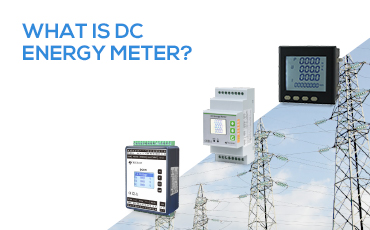
IEC Meter VS ANSI Meter – What is the difference
Both IEC Meter and ANSI Meter are widely used

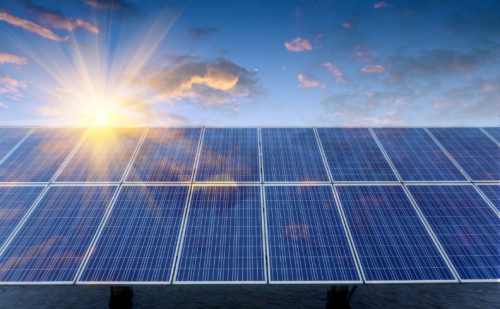
The application of DC energy meters for solar panels encompasses various crucial functions that contribute to the efficient and effective operation of solar energy systems. Below are some key applications:
Energy Production Monitoring: DC energy meters accurately measure the energy generated by solar panels. They monitor the direct current (DC) output from the solar panels, providing real-time data on the amount of energy produced. This information is essential for assessing the performance of solar panels and evaluating the overall energy production of the solar system.
System Performance Analysis: DC energy meters allow for the analysis of energy production patterns over time. By recording and analyzing energy production data, users can identify trends, assess system efficiency, and diagnose any potential issues affecting performance. This enables proactive maintenance and optimization strategies to enhance the overall performance of the solar energy system.

Load Management: DC energy meters facilitate load management by monitoring the energy consumption and production within the solar system. By tracking energy usage patterns, users can optimize the allocation of energy resources and balance energy supply and demand effectively. This is particularly important for off-grid or hybrid solar systems where energy storage and management are critical for reliable operation.
Environmental Monitoring: DC energy meters can also be utilized for environmental monitoring purposes. By tracking energy production and consumption data, users can assess the environmental impact of solar energy systems, such as carbon emissions reduction and fossil fuel displacement. This information is valuable for demonstrating the environmental benefits of solar energy and informing sustainability initiatives.
Environmentally friendly:
Low energy consumption design: The DC energy meter adopts low power consumption technology to minimize energy consumption and reduce the impact on the environment.
Green materials: Made of environmentally friendly materials, complying with environmental standards and reducing environmental pollution.
Renewable energy support: Support solar panel systems to promote the use of renewable energy, reduce dependence on fossil fuels, reduce carbon emissions, and be more environmentally friendly.

Efficiency management:
Energy management function: Monitoring the energy generation of solar panels, it helps users achieve effective management and distribution of energy and maximize energy utilization.
Load management support: Supports load management function, which can intelligently adjust energy distribution according to energy demand, improve the overall efficiency of the system, and reduce energy waste.
Data recording and analysis:
Large-capacity data storage: With large-capacity data storage function, it can record a large amount of energy generation data and provide users with detailed energy usage information.
Data analysis function: With data analysis function, it can conduct in-depth analysis of energy generation data, identify energy generation patterns and potential problems, and provide data support for system optimization.
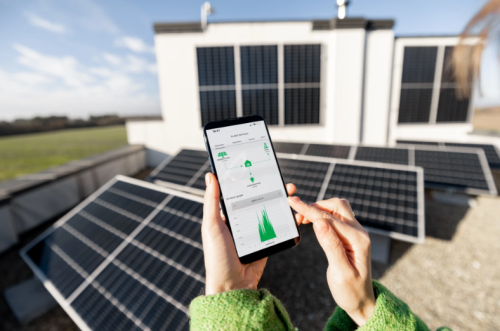
Monitor energy production in real time:
Real-time monitoring function: It can monitor the energy generation of solar panels in real time and provide accurate energy generation data to facilitate users to understand the operating status of the system at any time.
Instant alarm function: With instant alarm function, it can detect energy generation abnormalities or system failures in time, helping users to take timely response measures to ensure the stable operation of the system.
Related Aritcles

IEC Meter VS ANSI Meter – What is the difference
Both IEC Meter and ANSI Meter are widely used

DC energy meter for EV charger – Applications and Advantages
The DC energy meter for EV charger is a

DC Energy Meter for Solar System – Applications and Advantages
The DC energy meter for solar system is specifically
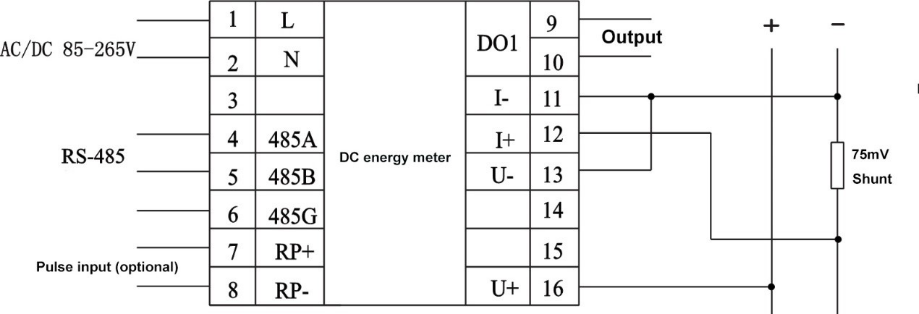
What is the difference between AC energy meter and DC energy meter?
An AC energy meter (alternating current energy meter) and
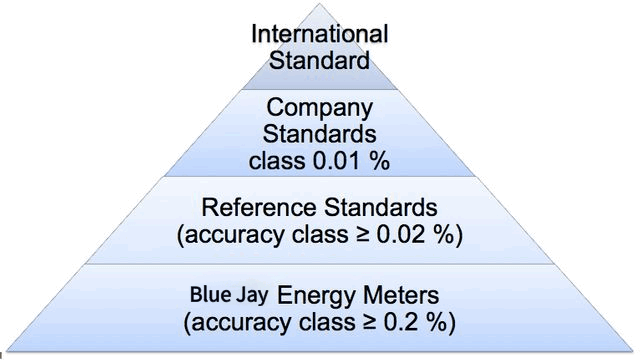
What Does Energy Meter Accuracy Class Mean?
Table of Contents An energy meter accuracy class is
